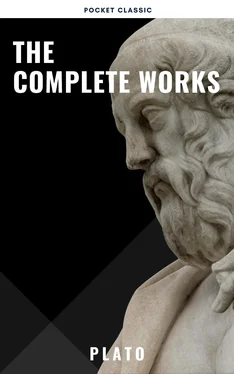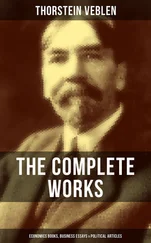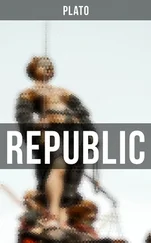‘Law is the king of all, of mortals as well as of immortals;’
this, as he says,
‘Makes might to be right, doing violence with highest hand; as I infer from the deeds of Heracles, for without buying them—’ (Fragm. Incert. 151 (Bockh).)
—I do not remember the exact words, but the meaning is, that without buying them, and without their being given to him, he carried off the oxen of Geryon, according to the law of natural right, and that the oxen and other possessions of the weaker and inferior properly belong to the stronger and superior. And this is true, as you may ascertain, if you will leave philosophy and go on to higher things: for philosophy, Socrates, if pursued in moderation and at the proper age, is an elegant accomplishment, but too much philosophy is the ruin of human life. Even if a man has good parts, still, if he carries philosophy into later life, he is necessarily ignorant of all those things which a gentleman and a person of honour ought to know; he is inexperienced in the laws of the State, and in the language which ought to be used in the dealings of man with man, whether private or public, and utterly ignorant of the pleasures and desires of mankind and of human character in general. And people of this sort, when they betake themselves to politics or business, are as ridiculous as I imagine the politicians to be, when they make their appearance in the arena of philosophy. For, as Euripides says,
‘Every man shines in that and pursues that, and devotes the greatest portion of the day to that in which he most excels,’ (Antiope, fragm. 20 (Dindorf).)
but anything in which he is inferior, he avoids and depreciates, and praises the opposite from partiality to himself, and because he thinks that he will thus praise himself. The true principle is to unite them. Philosophy, as a part of education, is an excellent thing, and there is no disgrace to a man while he is young in pursuing such a study; but when he is more advanced in years, the thing becomes ridiculous, and I feel towards philosophers as I do towards those who lisp and imitate children. For I love to see a little child, who is not of an age to speak plainly, lisping at his play; there is an appearance of grace and freedom in his utterance, which is natural to his childish years. But when I hear some small creature carefully articulating its words, I am offended; the sound is disagreeable, and has to my ears the twang of slavery. So when I hear a man lisping, or see him playing like a child, his behaviour appears to me ridiculous and unmanly and worthy of stripes. And I have the same feeling about students of philosophy; when I see a youth thus engaged,—the study appears to me to be in character, and becoming a man of liberal education, and him who neglects philosophy I regard as an inferior man, who will never aspire to anything great or noble. But if I see him continuing the study in later life, and not leaving off, I should like to beat him, Socrates; for, as I was saying, such a one, even though he have good natural parts, becomes effeminate. He flies from the busy centre and the market-place, in which, as the poet says, men become distinguished; he creeps into a corner for the rest of his life, and talks in a whisper with three or four admiring youths, but never speaks out like a freeman in a satisfactory manner. Now I, Socrates, am very well inclined towards you, and my feeling may be compared with that of Zethus towards Amphion, in the play of Euripides, whom I was mentioning just now: for I am disposed to say to you much what Zethus said to his brother, that you, Socrates, are careless about the things of which you ought to be careful; and that you
‘Who have a soul so noble, are remarkable for a puerile exterior; Neither in a court of justice could you state a case, or give any reason or proof, Or offer valiant counsel on another’s behalf.’
And you must not be offended, my dear Socrates, for I am speaking out of good-will towards you, if I ask whether you are not ashamed of being thus defenceless; which I affirm to be the condition not of you only but of all those who will carry the study of philosophy too far. For suppose that some one were to take you, or any one of your sort, off to prison, declaring that you had done wrong when you had done no wrong, you must allow that you would not know what to do:—there you would stand giddy and gaping, and not having a word to say; and when you went up before the Court, even if the accuser were a poor creature and not good for much, you would die if he were disposed to claim the penalty of death. And yet, Socrates, what is the value of
‘An art which converts a man of sense into a fool,’
who is helpless, and has no power to save either himself or others, when he is in the greatest danger and is going to be despoiled by his enemies of all his goods, and has to live, simply deprived of his rights of citizenship?—he being a man who, if I may use the expression, may be boxed on the ears with impunity. Then, my good friend, take my advice, and refute no more:
‘Learn the philosophy of business, and acquire the reputation of wisdom. But leave to others these niceties,’
whether they are to be described as follies or absurdities:
‘For they will only Give you poverty for the inmate of your dwelling.’
Cease, then, emulating these paltry splitters of words, and emulate only the man of substance and honour, who is well to do.
SOCRATES: If my soul, Callicles, were made of gold, should I not rejoice to discover one of those stones with which they test gold, and the very best possible one to which I might bring my soul; and if the stone and I agreed in approving of her training, then I should know that I was in a satisfactory state, and that no other test was needed by me.
CALLICLES: What is your meaning, Socrates?
SOCRATES: I will tell you; I think that I have found in you the desired touchstone.
CALLICLES: Why?
SOCRATES: Because I am sure that if you agree with me in any of the opinions which my soul forms, I have at last found the truth indeed. For I consider that if a man is to make a complete trial of the good or evil of the soul, he ought to have three qualities—knowledge, good-will, outspokenness, which are all possessed by you. Many whom I meet are unable to make trial of me, because they are not wise as you are; others are wise, but they will not tell me the truth, because they have not the same interest in me which you have; and these two strangers, Gorgias and Polus, are undoubtedly wise men and my very good friends, but they are not outspoken enough, and they are too modest. Why, their modesty is so great that they are driven to contradict themselves, first one and then the other of them, in the face of a large company, on matters of the highest moment. But you have all the qualities in which these others are deficient, having received an excellent education; to this many Athenians can testify. And you are my friend. Shall I tell you why I think so? I know that you, Callicles, and Tisander of Aphidnae, and Andron the son of Androtion, and Nausicydes of the deme of Cholarges, studied together: there were four of you, and I once heard you advising with one another as to the extent to which the pursuit of philosophy should be carried, and, as I know, you came to the conclusion that the study should not be pushed too much into detail. You were cautioning one another not to be overwise; you were afraid that too much wisdom might unconsciously to yourselves be the ruin of you. And now when I hear you giving the same advice to me which you then gave to your most intimate friends, I have a sufficient evidence of your real good- will to me. And of the frankness of your nature and freedom from modesty I am assured by yourself, and the assurance is confirmed by your last speech. Well then, the inference in the present case clearly is, that if you agree with me in an argument about any point, that point will have been sufficiently tested by us, and will not require to be submitted to any further test. For you could not have agreed with me, either from lack of knowledge or from superfluity of modesty, nor yet from a desire to deceive me, for you are my friend, as you tell me yourself. And therefore when you and I are agreed, the result will be the attainment of perfect truth. Now there is no nobler enquiry, Callicles, than that which you censure me for making,—What ought the character of a man to be, and what his pursuits, and how far is he to go, both in maturer years and in youth? For be assured that if I err in my own conduct I do not err intentionally, but from ignorance. Do not then desist from advising me, now that you have begun, until I have learned clearly what this is which I am to practise, and how I may acquire it. And if you find me assenting to your words, and hereafter not doing that to which I assented, call me ‘dolt,’ and deem me unworthy of receiving further instruction. Once more, then, tell me what you and Pindar mean by natural justice: Do you not mean that the superior should take the property of the inferior by force; that the better should rule the worse, the noble have more than the mean? Am I not right in my recollection?
Читать дальше












